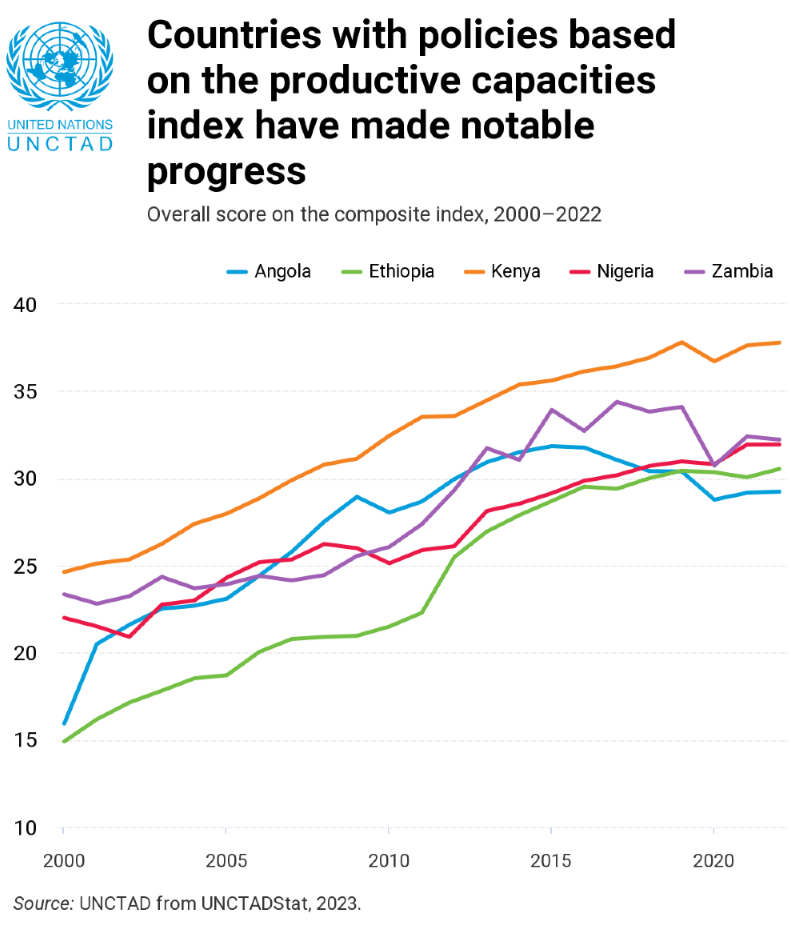
Vodafone Foundation donates €30,000 to support Mozambique over Cyclone Chido
Vodafone Foundation has pledged €30,000 to Save the Children in response to the devastation caused ...

A new generation Productive Capacities Index (PCI) – launched by the United Nations Conference on Trade and Development (UNCTAD) – will help countries make more accurate diagnostics and measurements of their economic performance.
By measuring the economy from an input perspective across eight core components of productive capacities, the PCI more fully captures economic potential and highlights key areas for development policy focus. These are natural capital, human capital, energy (electricity), ICTs, structural change, transport, private sector and institutions, which are mapped using 42 indicators.
Stronger productive capacities in these areas can help countries move towards long-term national development goals and achieve international targets like the Sustainable Development Goals.
Paul Akiwumi, UNCTAD’s director for Africa and least developed countries, said “The new generation PCI is a timely contributor to development policymaking. Against the turbulent global economic backdrop, reliable, up-to-date and accurate data can help governments react by focusing on the most pressing development issues.”
The new PCI also helps shape long-term planning. “What we can diagnose and show with the PCI are the underlying factors that are holding back countries from meeting their trade and development potential, such as key infrastructure gaps in transportation, ICT development and energy,” Akiwumi added.
The PCI is available through a dedicated online portal with publications, manuals, resources and tools. It maps the productive capacities of 194 economies and provides a better measure of development than other traditional benchmarks such as gross domestic product (GDP). It’s multidimensional and measures economic inputs and potential as opposed to outputs.
For governments, the PCI is a powerful and practical tool to track progress over time and forge informed policies to plug development gaps. It can help countries respond to a call by UN Secretary-General António Guterres to move beyond GDP and measure the things that really matter to people and their communities.
UNCTAD Secretary-General Rebeca Grynspan said “No nation has ever developed without building the required productive capacities, which are key to enabling countries to achieve sustained economic growth with accelerated poverty reduction, economic diversification and job creation.”
UNCTAD defines productive capacities as “the productive resources, entrepreneurial capabilities and production linkages that together determine the capacity of a country to produce goods and services and enable it to grow and develop.”
Vodafone Foundation has pledged €30,000 to Save the Children in response to the devastation caused ...
The European Commission has adopted a decision to disburse €1 billion in loans to Egypt following ...
Opening the Helwan University clinic brings the total number of Safe Women Clinics to 48 ...


اترك تعليقا